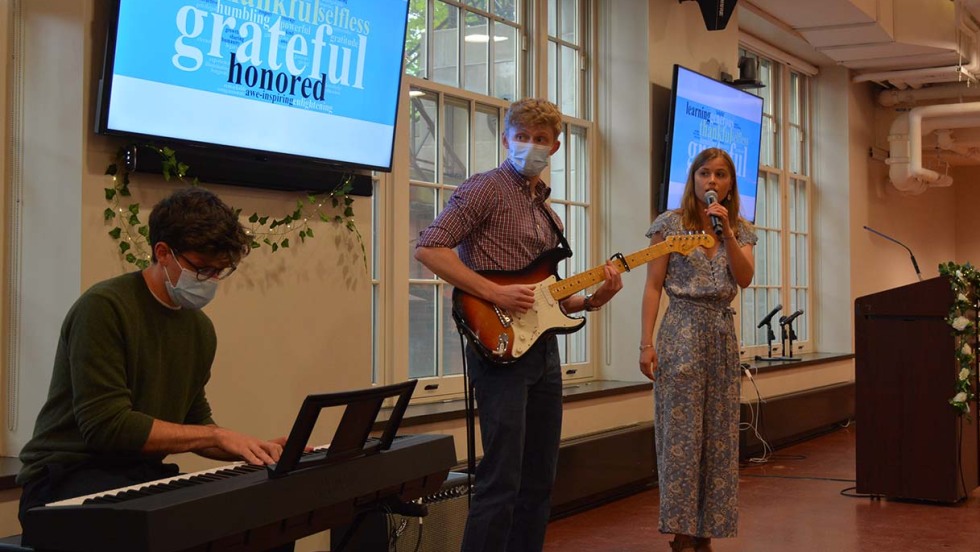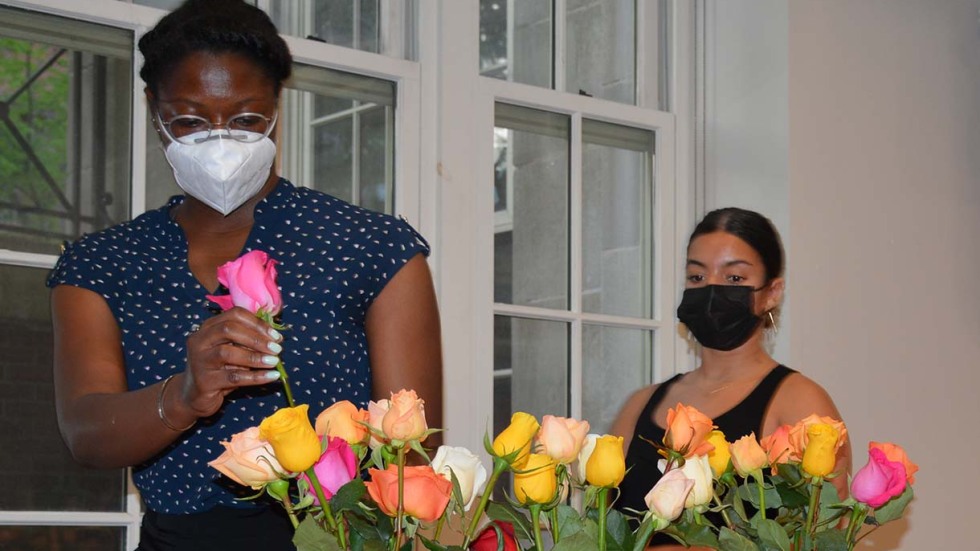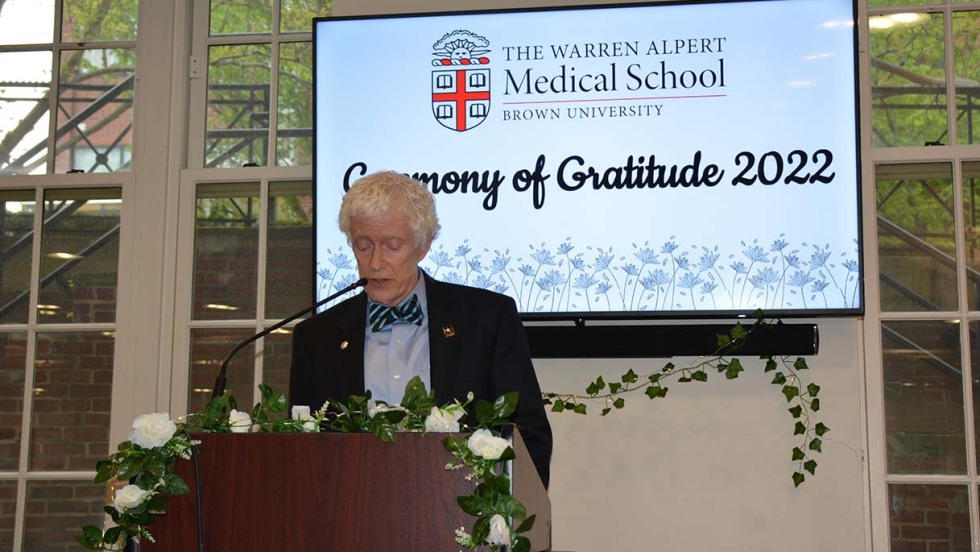An essential part of medical education
The ceremony enables students to gain closure on their time studying anatomy and to contemplate the value of the donors’ decisions, the event organizers said. At the same time, families can celebrate their loved ones’ memories and appreciate the significance of their contributions, said Dale Ritter, the anatomy course director at Brown’s medical school.
In her letter, Franco reflected on questions about her donor.
“When we studied the brain, I felt like I was holding [the donor’s] whole lives in my hands — all their memories, thoughts, feelings,” she read. “I wondered what those memories were. I wondered how we were so fortunate to be the recipients of such a selfless gift and sacrifice.”
Each donor’s gift "is a testament to their character, to their passion for education, to their selflessness,” she added.
In the 50 or more hours medical students spend in anatomy class, they become well acquainted with the physical attributes of the bodies they study, Ritter said, but they don’t learn about the donors beyond basic information like age and cause of death. The ceremony, he said, is a time to acknowledge the donors’ character as well as their experiences and lifetime impacts.
The Anatomical Gift Program provides invaluable education not only for Brown medical students but also those in the physician assistant program at Bryant University, the physical and occupational therapy programs at the University of Rhode Island and those in an undergraduate course at Providence College, according to Ritter.
“I hope I can say we’re all humbled by [these gifts],” said Olivia Nyberg, member of the M.D. Class of 2025 at Brown. She added that her grandmother donated her body to a similar program and acknowledged her “spirit of generosity, sacrifice and humility with which every individual had given their gift.”
Honoring tremendous generosity
Each of this year’s 52 donors was acknowledged by their first name as students passed in front of the audience and placed roses into designated vases. While the ceremony can be sad for families, Ritter said he hoped that for most relatives, hearing remarks from the students, “reinforced their feeling that what their loved one did was a good thing.”
For ceremony attendee Katie Gallogly Lowell, the event was a way to honor her mother and father-in-law, both of whom chose to become donors. They were both family-oriented and selfless people, she said. Lowell’s mother had been unable to receive a wake and funeral because of the pandemic.
“Having this ceremony, in a way, is a huge part of the closure,” Lowell said. The ceremony “was so much more than I was anticipating. It was very lovely.”
Lowell also was reunited at the event with her mother’s hospice physician: Dr. Edward Martin, the chief medical officer at Hope Health and a professor of medicine and clinician educator at the Warren Alpert Medical School. In an address during the event, Martin talked about the value for medical providers of knowing patients as whole people, not just as their illness, and the lessons on gratitude that he’s gleaned from some of his patients.
He reminded the audience to “let the people close to you — your family, your friends — know how thankful you are for having them in your life. For those family members who join us tonight, we can’t thank you enough for this tremendous generosity...You should be so proud of your loved ones.”
In addition to keeping the memories from the celebration, family members could take home letters written by other first-year medical students in which they expressed the meaningfulness of the donors’ gift.
Toward the end of the ceremony, several family members recalled their relatives’ excitement about contributing to the program, their involvement in health care during their lives, and how much they’re missed, evoking laughter, smiles and tears from the audience.
“I’m so glad that the families were willing to come up and share stories, because I think that’s what everyone needed to make it all very real,” Franco said.
Alex Philips, a graduate of Brown’s Program for Liberal Medical Education who is now a first-year medical student, said that “having a ceremony that honored the sheer amount of learning that took place, and dedication and generosity that our body donors had, was incredible.”
As the evening drew a commemorative close to the donors’ final roles in education, students viewed the experience as one essential but early step in their own lifelong journeys in medicine.
“When it comes to your loved ones’ impact in the world, our future patients can assure you this moment is far from the end,” said Soneida DeLine-Caballero, a student in Brown’s Gateways Program biomedical master’s degree program.
“I hope you find solace in the fact that your loved ones will be saving lives in the future,” Franco said. “They have laid the foundation for our entire medical careers.”
The story is adapted from a Medicine@Brown feature by Emilija Sagaityte, a Brown Class of 2022 graduate who will begin studies at the Warren Alpert Medical School this fall.


